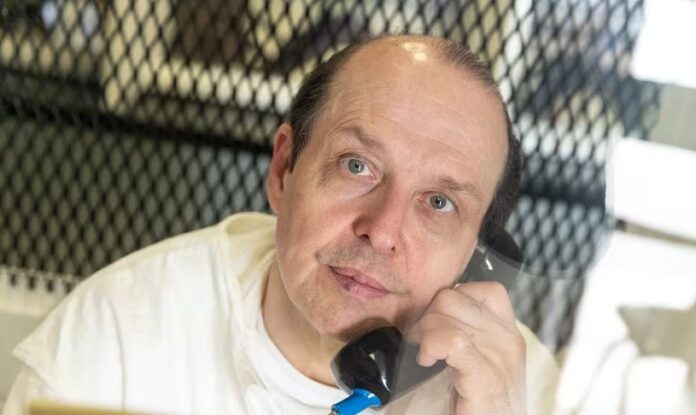Texas is preparing to execute Robert Roberson on Thursday for the 2002 death of his 2-year-old daughter, a case that has drawn attention due to its reliance on the controversial diagnosis of “shaken baby syndrome.”
Roberson has consistently maintained his innocence, and many medical experts, along with a bipartisan group of lawmakers, argue that the science used to secure his conviction is now considered outdated.
Despite his clemency request, the Texas Board of Pardons and Paroles has rejected his appeal. As of now, Governor Greg Abbott has not taken action to intervene in the case. The upcoming execution marks a significant moment in the ongoing debate surrounding the validity of shaken baby syndrome as a basis for criminal convictions.
Robert Roberson’s case is a notable and controversial legal situation involving the conviction of a father for the death of his young daughter, linked to the diagnosis of “shaken baby syndrome.” Here are the key details:
Case Overview
- Incident: In 2002, Robert Roberson’s 2-year-old daughter, Rebecca, was found unresponsive at their home in Texas. She was later pronounced dead at the hospital. The initial diagnosis indicated she suffered from injuries consistent with shaken baby syndrome.
- Arrest and Charges: Roberson was arrested and charged with capital murder. Prosecutors argued that he had violently shaken his daughter, leading to her death.
- Trial and Conviction: During the trial, medical experts testified about the presence of classic signs of shaken baby syndrome, which led to his conviction in 2003. Roberson was sentenced to 30 years in prison.
- Claims of Innocence: Roberson has consistently maintained his innocence, asserting that he did not harm his daughter. He claimed that the injuries could have resulted from an accidental fall or a medical condition.
- Scientific Controversy: In the years following his conviction, the validity of shaken baby syndrome as a definitive cause of death has come under scrutiny. A growing number of medical professionals, along with a bipartisan group of lawmakers, have argued that the scientific evidence supporting the diagnosis is outdated and potentially flawed.
- Clemency and Appeals: Roberson’s legal team has sought clemency and has raised concerns about the reliability of the medical evidence used in his trial. Despite these efforts, the Texas Board of Pardons and Paroles rejected his clemency request.
- Upcoming Execution: As of October 2024, Roberson is scheduled for execution, marking a significant moment in the ongoing debate surrounding shaken baby syndrome and wrongful convictions based on controversial medical diagnoses.
What is Shaken Baby Syndrome
Shaken Baby Syndrome (SBS), also known as Abusive Head Trauma (AHT), is a serious form of child abuse that occurs when an infant or young child is violently shaken, leading to severe injuries. Here are some key points about SBS:
- Mechanism of Injury: Shaking a baby can cause the brain to move rapidly back and forth within the skull, leading to bruising, swelling, and bleeding in the brain. This movement can also result in damage to the eyes and spinal cord.
- Symptoms: Infants with SBS may exhibit a range of symptoms, including:
- Unresponsiveness or lethargy
- Seizures
- Difficulty breathing
- Vomiting
- Irritability or abnormal behavior
- Poor feeding or refusal to eat
- Causes: SBS often occurs in moments of frustration when a caregiver is unable to soothe a crying infant. It can happen in situations where the caregiver feels overwhelmed and reacts by shaking the child.
- Long-Term Effects: Survivors of SBS may suffer from long-term consequences, including cognitive impairments, developmental delays, physical disabilities, vision problems, and in severe cases, death.
- Diagnosis: Diagnosis of SBS can be complex and typically involves a combination of clinical examination, medical history, and imaging studies (such as CT or MRI scans) to identify brain injuries or other signs of trauma.
- Controversy: The diagnosis of SBS has been the subject of significant debate and controversy, particularly regarding the validity of the scientific evidence supporting it. Critics argue that some cases may involve accidental injuries or natural causes rather than abuse, leading to wrongful convictions.
- Legal Implications: SBS cases often result in criminal charges against caregivers, with legal proceedings heavily relying on expert testimony regarding the nature and cause of the child’s injuries. The controversy surrounding SBS has led to calls for more research and reassessment of the medical evidence.
- Prevention: To prevent SBS, education programs for parents and caregivers emphasize the importance of coping strategies for dealing with infant crying, as well as understanding the dangers of shaking a child.



